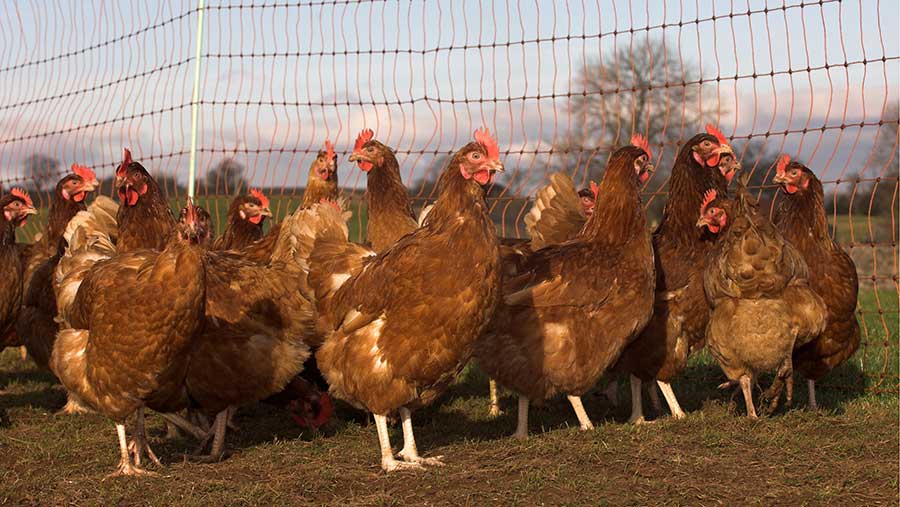Avian flu restrictions in ‘higher-risk’ areas to be lifted
 © Wayne Hutchinson/FLPA/imageBROKER/REX/Shutterstock
© Wayne Hutchinson/FLPA/imageBROKER/REX/Shutterstock All poultry in England is to be allowed outside from Thursday (13 April) as the risk of avian influenza spread from wild birds is downgraded by Defra.
The UK’s chief veterinary officer Nigel Gibbens said, while the H5N8 strain of bird flu that caused more than 1,000 outbreaks across Europe this winter may remain in the environment, the danger of cross contamination had subsided.
As a result, birds still subject to compulsory housing orders across England, usually because they were close to large bodies of water, will be allowed to range again.
See also: Poultry World has full analysis of avian influenza this winter
The ban on gatherings of poultry, such as pure breed showings, remains in place until further notice.
It brings the housing requirements in line with Wales and Scotland, where all birds were allowed to range, subject to detailed risk assessment. That risk assessment and enhanced biosecurity measures will continue to apply to all poultry keepers in England.
The change in policy came as poultry industry leaders warned the warmer weather posed a threat to housed birds in systems designed to be free range.
See also: Map: Avian influenza incidence across the UK 2016-17
Mark Williams, chief executive of the British Egg Industry Council, said last week producers were concerned about ventilation systems’ ability to cope and potential health issues, such as red mite. On Sunday (9 April) the hottest temperature this year was recorded at 25C in Cambridge.
Defra said the change was based on “the latest scientific and veterinary advice”. Wild birds have now left the UK, resident wildfowl are at their lowest levels and entering their breeding season, meaning they will not travel as widely, it said.
Avian flu risk ‘not gone away’
The last bird in the UK found to have avian influenza was in the south-west of England on 10 March.
Mr Gibbens said the new regime did not mean “business as usual” for poultry producers.
“The risk from avian flu has not gone away and a prevention zone remains in place, requiring keepers across England to take steps to prevent disease-spreading”.
“We continually review our disease control measures in light of new scientific evidence and veterinary advice.
“Based on the latest evidence on reduced numbers of migratory and resident aquatic wild birds we believe that kept birds in the areas we previously designated as higher risk are now at the same level of risk as the rest of England and may now be let outside.
Detailed guidance can be found on Defra’s avian influenza home page
